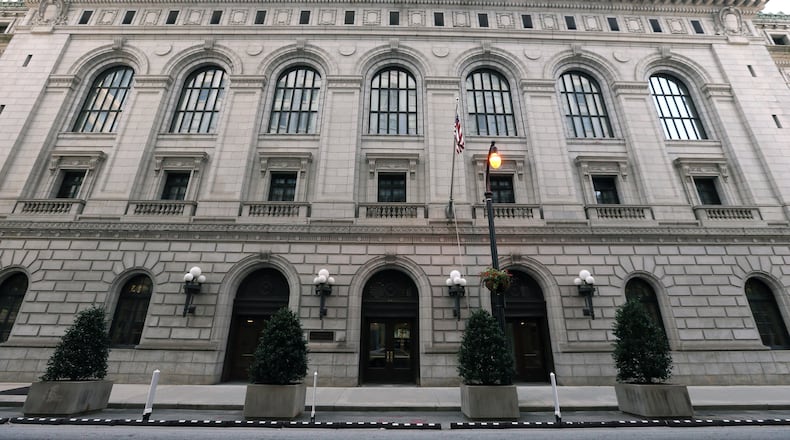U.S. senators voted along party lines to confirm President Joe Biden’s nominee for the Atlanta-based federal appeals court Monday.
Judge Embry Kidd, a federal magistrate judge in Florida, will replace Judge Charles Wilson on the 11th U.S. Court of Appeals. The court takes federal cases from Georgia, Florida and Alabama.
Wilson is the longest-serving judge on the court. He announced in January his intention to take senior status upon confirmation of his successor.
Kidd is the second judge Biden has placed on the court. He nominated Nancy Abudu in December 2021 and her appointment was confirmed in May 2023.
Kidd said during a Senate Judiciary Committee hearing in June that he grew up in Alabama and attended college in Georgia. He obtained a bachelor’s degree in political science from Emory University in 2005 and a law degree from Yale Law School in 2008.
“It is truly an honor to be considered for a seat,” Kidd said at the hearing.
Votes from 46 Democrats and three independent senators secured Kidd’s place on the court Monday. His appointment was opposed by 44 Republicans and one independent senator. Five Republicans and one Democrat did not participate in the vote.
“It went pretty smoothly,” said Carl W. Tobias, a professor at the University of Richmond School of Law who specializes in federal judicial selection. “He’s so well qualified. There wasn’t that much opposition. I think he’ll be a terrific member of the court.”
Staff for Kidd did not immediately respond to inquiries about his appointment. A spokesperson for the 11th Circuit said Kidd will be sworn in when Wilson takes senior status, which won’t be before Dec. 31.
The 11th Circuit is considered to be one of the most conservative federal appellate courts in the country, in large part because President-elect Donald Trump was able to appoint six of its 12 current judges during his first term in office.
Abudu and Wilson are the 11th Circuit’s only Black judges. Kidd is also Black.
Wilson, whose primary chambers are in Florida, will join nine other senior judges of the court. Senior judges can choose to handle a reduced caseload.
The court will continue to be considered conservative-leaning with seven of its core judges appointed by Republican presidents, including the six who gained their seats under Trump.
Kidd has been a federal magistrate judge in Florida since 2019. He previously spent five years as a Florida-based federal prosecutor, after working as an associate at the law firm Williams & Connolly in Washington, D.C.
Kidd also served as a law clerk for a judge of the U.S. Court of Appeals for the 4th Circuit in Virginia after graduating from Yale.
Tobias said Biden has four other nominees to federal appeals courts whose confirmation is expected before the change in administration. He said those appointments would bring Biden close to equaling the number of judges that Trump placed on federal appeals courts during his first term.
Biden is on track to appoint more federal trial court judges than Trump did during his first presidency, Tobias said.
“What Biden didn’t get was he only has one Supreme Court appointee, but he only had one opportunity, as opposed to three,” he said.
Among Biden’s nominees for federal trial court judges is Tiffany Johnson, who he tapped in July for the U.S. District Court for the Northern District of Georgia. Johnson, a federal prosecutor, should be confirmed by the Senate in December, Tobias said.
If that happens, Johnson will replace Judge Steve C. Jones, who announced in May his plan to become a senior judge on Jan. 1.
Federal judges generally have lifetime appointments. They can take senior status after serving at least 10 years. Even if a judge continues to handle a full caseload as a senior judge, their change in status prompts a vacancy on the bench.
About the Author
Keep Reading
The Latest
Featured




